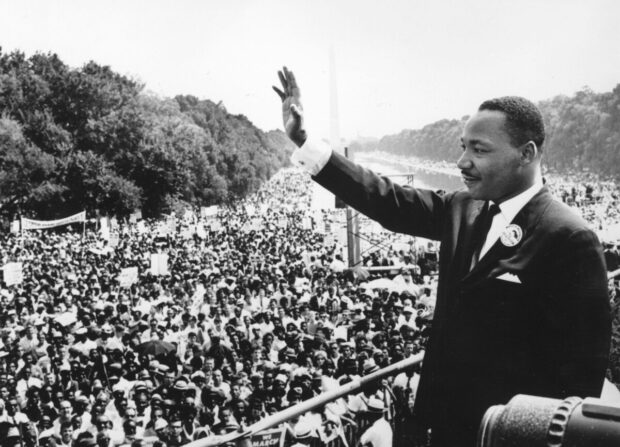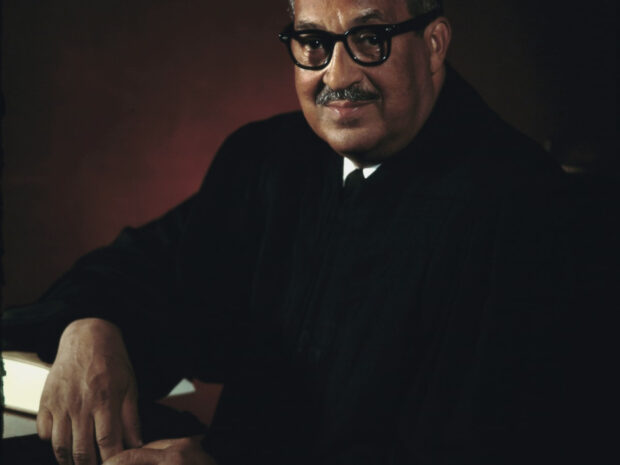In 1967, the liberal post-war consensus in the USA fell apart. This was based on a combination of several elements: on the one hand, on a robust foreign policy anti-communism and internationalism, on the other hand, on growing prosperity in the wake of the economic boom after the Second World War, which was accompanied by the expansion of welfare state programs, but also growing political participation of previously discriminated groups.
Afro-Americans in particular had made progress. State-sanctioned “racial segregation” and the largest legal exclusion of most blacks from the right to vote in the southern states were repealed with the civil rights laws of 1964/65. For this, the heads of the civil rights movement had relied not least on the anti-totalitarian and anti-communist consensus of the USA, because the struggle for freedom in the world consequently required freedom and equality at home. This precarious compromise split in 1967, also because it became clear that legal equality did not result in a rapid reduction in economic inequality.
READ: The History of One Famous House: The Dakota. The Place Where Politicians and Celebrities Stay
Racism and marginalization continued, blacks remained economically far worse off than the average. While the counterculture, heavily suspected by middle-class Americans, turned into its nightmare in the summer of love in 1967, massive uprisings broke out again in July 1967 in several inner-city black ghettos, especially in Newark and Detroit, some of which were triggered by police violence.
In 1967 there were deep cracks in the social and political fabric of the USA. Conflicts that had previously been hidden became manifest. A decisive upheaval was looming, which in 1968 was to intensify in terms of the history of events. Over the “race question”, demands social justice, questions of sexuality, women’s rights, patriarchal authority, and “American values”, but especially over Vietnam, the inner unity of the Democratic Party and US liberalism crumbled.
In early 1967, Ronald Reagan took office as governor of California. He distinguished himself as a tough fighter for “law and order”. The conservative turnaround, which overshadows US politics to this day, picked up speed. The political hegemony of the Democrats, the basis of which President Franklin D. Roosevelt had laid with the New Deal from 1933, ended.
The fragmentation of the liberal-democratic spectrum can be symbolically identified in a speech by the most prominent representative of the US civil rights movement, Dr. Martin Luther King, Jr., at Riverside Church in New York in April and his growing commitment to the poor.
READ History of Manhattan: Historical Facts and Personalities
King’s speech forms the starting point for a journey through time, concentrated on a few keywords, through the year 1967, in which social inequality became a major issue, along with the counterculture of an ideology of freedom.
On April 4, 1967, America’s best-known minister, Baptist preacher, civil rights activist, and Nobel Peace Prize laureate Martin Luther King delivered a sensational speech at Riverside Church in New York. In this, he finally broke his long silence about Vietnam and talked nation and politics into conscience. As a Nobel Peace Prize laureate, but especially as a pastor, it is his duty and obligation to proclaim Christ’s message of peace without any ifs or buts.

At some point, silence will turn into treason. This point has now been reached with a view to Vietnam. He countered possible objections that the gospel is addressed to all people: “Communists and capitalists, their children and ours, black and white, revolutionaries and conservatives.”
But the reason why the war is so fatal is that it wounded the United States from within because it poisoned America’s soul. How could he stop the angry young men in the inner-city ghettos from resorting to Molotov cocktails and rifles in their social hopelessness when the US government had become the world’s “greatest provider of violence,” he asked.
King was interrupted several times by prolonged applause. The audience of around 3,000 Christian and Jewish war critics, mostly members of the organization Clergy and Laymen Concerned About Vietnam (CALCAV), was predictably enthusiastic. It had been waiting for this moment of the cancellation of the Vietnam War by a pre-eminent moral authority like King. But the general public reacted negatively.
READ The Best Universities of New York
The liberal New York Times has taken a critical stance on the war in Vietnam for some time but criticized King’s association with the fight against poverty. Mixing up complex problems harms all sides. King is doing his cause a disservice because conservative members of Congress would be ammunition against welfare state programs if he compared aspects of warfare in Vietnam with Nazi methods. In the Oval Office, President Lyndon B. Johnson was indignant: King was “a naive black preacher who was set up by the communists.”

The crowning glory of the growing political participation of African-Americans was the appointment of former NAACP legal advisor Thurgood Marshall as Supreme Court Justice in October 1967.
He had already broken through a barrier as the first black man in the office of the chief attorney for the government. His election made the established forces of the civil rights movement proud.
Like us on Facebook for more stories like this: